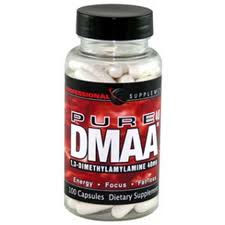January 3, 2011 — If you have been injured after taking DMAA, you may have a DMAA lawsuit. The drug is found in many popular dietary supplements used for weight-loss, pre-workout boosters, and as an energy enhancer (including Jack3d and OxyELITE Pro). Recently, it has come under intense legal scrutiny after it was found the bloodstream of several people who collapsed, had heart attacks, or died — including two soldiers, and several people taking DMAA in party pills. Though the Food and Drug Administration has not yet reviewed the regulatory status and safety of the products, the Department of Defense has recently decided to ban the sale of the products on U.S. military bases.
A DMAA lawsuit has been filed in the U.S. District Court in the Central District of California against USPLabs and their popular OxyELITE Pro and Jack3d products. Though the drug-maker claims their products are safe to use, the complaint alleges that the products contain drugs “in a synthetic form that is both illegal and dangerous.” Though there is no scientific evidence linking the use of DMAA to severe, life-threatening side effects, many organizations are erring on the side of caution and moving to regulate, ban, or limit the sales of the drug.
What is DMAA? It has several names, and may be noted on supplement ingredient labels as 1,3-dimethylamylamine, Methylhexaneamine, MHA, or “geranium extract.” The compounds in the drug are similar to amphetamines and ephedrine, and have stimulant effects on the body.
Unfortunately, they may also cause severe side effects. The Department of Defense decided to ban sales of the drug on military bases after finding an unreasonable danger that the products increased blood pressure, caused headaches, lightheadedness, stroke, depression, irregular heartbeat, dehydration, tremors, and lethal exhaustion.
Several severe adverse events have been reported. In January 2012, a New Zealand man suffered a cerebral hemorrhage after taking DMAA. Two soldiers who had heart attacks during physical training had the drug in their bloodstream. In another event, three soldiers and two Marines who collapsed during heavy exercise were taking the drug. Because it is marketed and used to improve physical performance, the World Anti-Doping Agency lists DMAA as a prohibited stimulant.
There has also been a controversy over the labeling of DMAA, and whether it is a derivative of the geranium plant. A Chinese research study claimed that the product is an extract of the geranium stem, leaf, or other part of the plant. The study was published in a non-reputable journal, and since its publication, the findings have come under intense scrutiny. The American Herbal Products Association has warned its members not to list DMAA as a geranium-based product.
Dietary supplements that contain DMAA may include:
- USPlabs Jack3d (Tropical Fruit and Lemon Lime)
- USPlabs Oxy Elite Pro
- Nutrex Lipo 6 Black Caps (his and hers)
- Nutrex Lipo 6 Black Ultra Concentrated (his and hers)
- Nutrex Hemo Rage Black Powder (Punch and Berry)
- Isatori PWR
- Muscletech Neurocore
- Muscletech Hydroxyslim
- Fahrenheit Nutrition Lean EFX
- Muscle Warfare Napalm
- All American Efx K-Otic
- SNI Nitric Blast
- BIORhythm SSIN Juice
- Muscle Meds Code Red
- SEI MethylHex (4 and 2)
- Grenade (universal) Grenade
- M.A.P. (iovate) Arson
- Gaspari Nutrition Spirodex
How do I contact a DMAA Lawyer for a DMAA Lawsuit?
For a free consultation, please contact Collen A. Clark at The Clark Firm, LLP immediately. You may be entitled to compensation by filing a DMAA lawsuit.
Collen’s amazing success in the courtroom and well known dedication to his clients has earned him the recognition of his peers as one of The Top Trial Lawyers in Texas.”
The Clark Firm has assembled a team of trial lawyers with more that 100 years experience, participation in over 600 jury trials and $60 million in verdicts and/or settlements. Please use the form below to contact a DMAA lawyer for a free DMAA lawsuit review.



 To contact us for a free review of your potential case, please fill out the form below or call us toll free 24 hrs/day by dialing:
To contact us for a free review of your potential case, please fill out the form below or call us toll free 24 hrs/day by dialing: